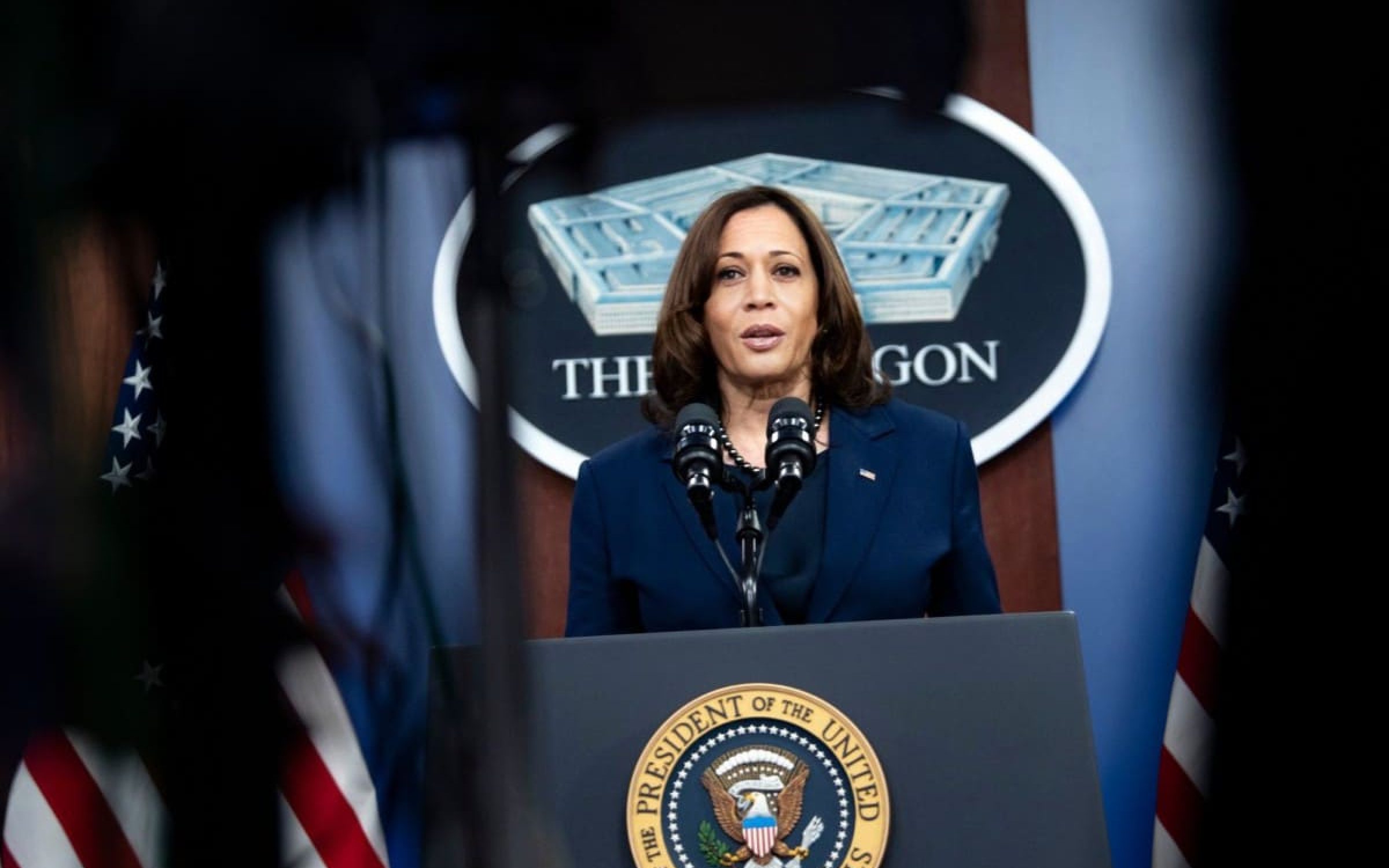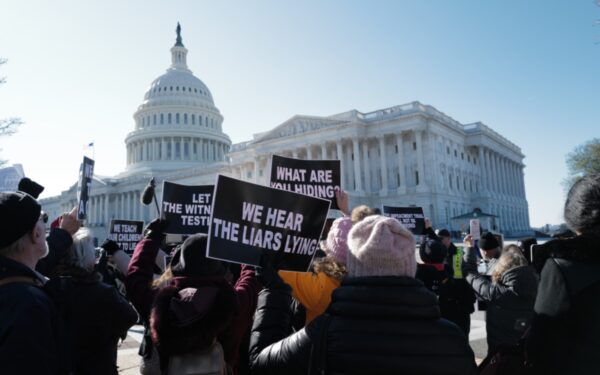Joe Biden has made it clear he intends to stand for re-election in 2024. But despite his state of the union address reflecting a fighting spirit that many interpreted as another indication for a 2024 bid, Biden’s intention may not necessarily hold up.
Within the Democratic party, concerns have grown over the president’s age and his low approval ratings. Recent news of classified documents found in his Delaware home have certainly not helped in soothing these concerns.
If Biden does not run, the 2024 Democratic primaries would become a much more open contest. And there are several potential candidates.
Kamala Harris
As the current vice president, Kamala Harris would appear to be the obvious second choice if Biden decides not to run. But, much like the president, she has done very poorly in approval ratings. In early February, she had an approval rating of just 39%.
While a vice president’s approval ratings have historically been tied to those of the president, Harris would have to find a balance between setting herself apart from Biden and not diminishing the administration’s efforts.
Stacey Abrams
When Georgia flipped blue in 2020, many credited Stacey Abrams for the success. The former minority leader of the Georgia House of Representatives was a prominent campaigner for Democrats ahead of the 2020 election.
But despite this success in the south being attributed to her, Abrams comes with a difficult electoral record. She stood for governor in Georgia in 2018 and 2022 and lost both times, which could certainly cast some doubts on her electability within the party and among the voting public.
Pete Buttigieg
Pete Buttigieg went from local to national politics within the span of just a few months. The former mayor of South Bend, Indiana, ran for the Democratic nomination for president in 2020 and won the Iowa caucuses. But he dropped out of the race shortly thereafter. When Biden took office, he appointed Buttigieg as transport secretary – and since his move to Washington, Buttigieg has continued to make a name for himself.
Within the Democratic party, he appears to enjoy much popularity. He was “the most requested surrogate on the campaign trail” ahead of the 2022 midterms. If elected, Buttigieg would be the youngest ever president and the first openly gay man to become president.
But the proposed changes to the Democratic primary schedule may pose a challenge for Buttigieg, who has previously had significant difficulties securing support from minority voter groups.
Amy Klobuchar
The first woman elected to represent Minnesota in the US Senate, Amy Klobuchar has been on the national political stage since 2007. During the confirmation hearings for supreme court associate justice Brett Kavanaugh, she made headlines and drew praise for her sharp line of questioning. Klobuchar previously ran for president in 2020 and put her support behind Biden after exiting the race.
She is seen as a moderate, someone who could unite both sides of the party and might be a close alternative to Biden. However, she has lower name recognition than her possible opponents within the party and had difficulties securing excitement for her campaign in 2020, an issue that could block her path again.
Gavin Newsom
California governor Gavin Newsom, who won a second term at the midterms, made headlines last year when he paid for billboards in conservative states like Texas and Indiana advertising that abortion is still legal in California.
Newsom is less disliked than Biden and Harris but is still polling in the single digits according to latest data. But this may be explained by his slightly lower name recognition among voters. Data from the January Granite State Poll in New Hampshire shows that some voters felt they do not know enough about him to form an opinion yet.
If Newsom enters the race for the Democratic nomination, his early campaign strategies would thus need to be focused on raising his public profile across the nation.
Elizabeth Warren
Elizabeth Warren, the senator for Massachusetts since 2013, previously ran for president in 2020 and quickly became known as the candidate with the most detailed plans for every issue on the agenda. While she did not win the nomination, she has since continued to make waves on Capitol Hill with passionate speeches on issues such as abortion rights.‘Angry’: Elizabeth Warren decries the supreme court decision over abortion rights, May 2022.
Behind Biden and Harris, who naturally have high name recognition due to their positions, Warren is best known among potential candidates. Additionally, she is less disliked than the president and vice president.
Among voters in two of the key proposed early primary states, New Hampshire and South Carolina, Warren enjoys particular popularity according to recent data from the Granite State Poll and South Carolina Policy Council polling.
Gretchen Whitmer
After winning a second terms as governor in the November 2022 midterms, defeating a Trump-backed Republican and increasing her win margin from 2018, Gretchen Whitmer has entered the 2024 stakes as a wild-card contender.
Whitmer was first elected to the Michigan House of Representatives in 2000, and gained national attention for her speech on abortion rights in 2013, where she revealed that she had been sexually assaulted as a young woman. She was the target of a kidnapping plot thwarted by the FBI in October 2020.
Whitmer is well known for her ability to work across the aisle and has passed more than 900 bipartisan bills as governor. With Michigan poised to move up in the Democratic primary calendar, Whitmer could have an early home advantage if she decides to run.
Whether vice president or wild card favorite, no Democrat except Biden has declared an intention to run. The ball is in the president’s court. But if he decides not to run amid increased calls for him to step aside, the Democratic party certainly has options and the primaries could shape up to become a highly competitive contest.
This article was originally published in The Conversation.
Caroline Leicht is a PhD Candidate, University of Southampton.
Write to us with your comments to be considered for publication at letters@reaction.life




